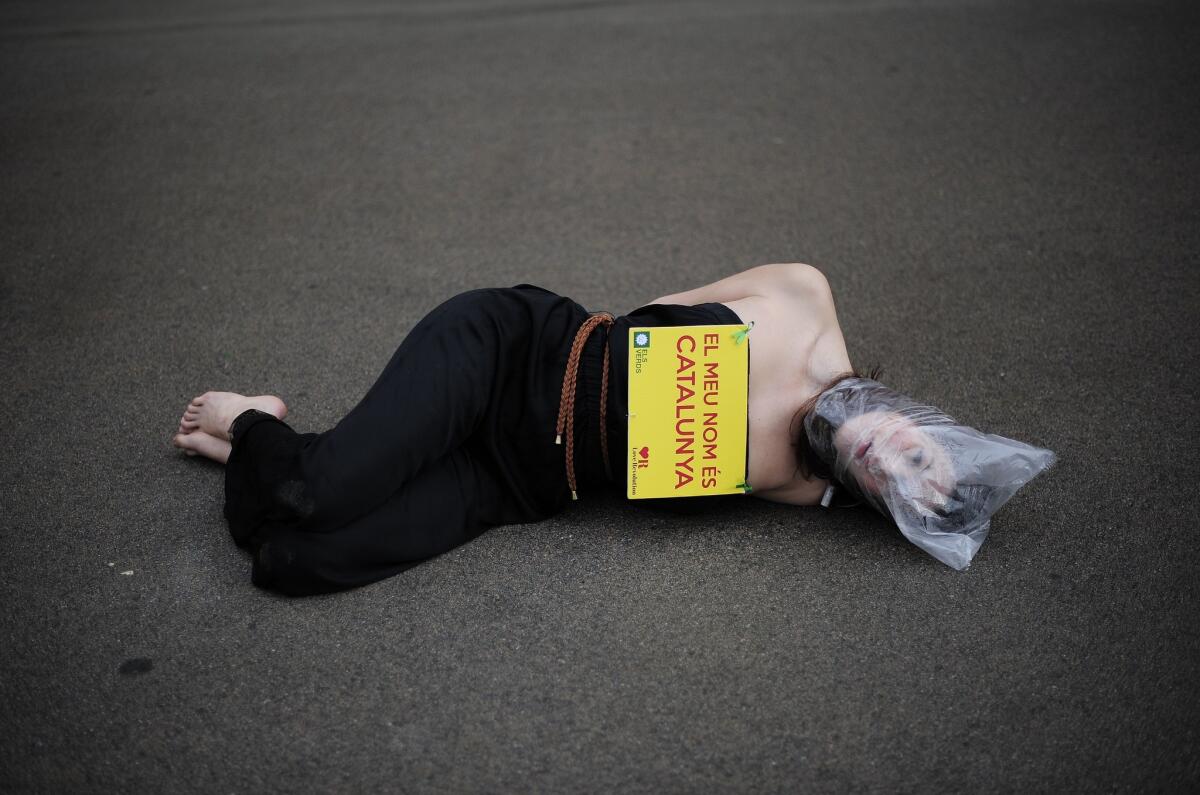Lawmakers in Catalonia demand referendum on independence from Spain

- Share via
MADRID -- Lawmakers in the northeastern Spanish region of Catalonia voted Thursday to demand powers to hold a referendum on independence from Spain, ramping up their confrontation with a central government determined to avoid the breakup of the country.
The vote was largely symbolic, because the Spanish government has repeatedly said that it considers any gesture toward Catalan secession -- even a referendum on the question -- to be unconstitutional and that it would block any such moves. Both of Spain’s main political parties oppose the idea of a Catalan breakaway.
Nevertheless, Catalonia’s regional assembly, based in Barcelona, overwhelmingly approved a motion Thursday to submit a request to Madrid for “the capacity to authorize, invoke and organize a referendum on the political future of Catalonia.”
“There are people who think this step is pointless, because it is pretty clear that the response will be negative,” Marta Rovira, a Catalan lawmaker from the pro-independence ERC party, said during the assembly session. “But as the Spanish parliament declines to negotiate, this will only expose its stance to the world, and give us legitimacy to stay our course.”
The measure passed with 87 votes in favor, mostly from ruling pro-independence parties, 43 against and three abstentions. Those in favor included three opposition Socialist lawmakers who bucked their party line. Catalonia’s Socialists normally support a federal system of governance rather than withdrawal from the rest of the country.
With a population of 7.5 million, Catalonia has its own language and distinct culture, which were suppressed under the nearly 40-year military dictatorship of Gen. Francisco Franco, who died in 1975. Catalonia is also wealthier than other Spanish regions, and separatist fervor has grown there during Europe’s debt crisis. Many Catalans resent paying taxes to Madrid, which uses those funds in part to subsidize services in poorer Spanish regions.
Last month, Catalonia’s regional president, Artur Mas, set a date of Nov. 9 for an independence referendum. He and his supporters have already decided on the wording: “Do you think that Catalonia should be a state, yes or no? If yes, do you want that state to be independent, yes or no?”
Catalans are about evenly split over whether to break away from Spain and establish their own country, according to polls. Such a secession is unprecedented in any European Union nation. But many Catalans, upset by Madrid’s unyielding stance, point to Britain, where the government has agreed to a referendum on Scottish independence later this year.
Support for secession among Catalans drops dramatically if membership in the EU, the North Atlantic Treaty Organization and the euro currency zone are not guaranteed for their hypothetical new country. Any new state in Europe would likely have to apply for membership to those groups.
Catalonia’s population is larger than those of EU member nations such as Ireland, Denmark and Finland. Its economy is about the same size as Portugal’s, representing about one-fifth of Spain’s $1.5-trillion gross domestic product.
Frayer is a special correspondent.
More to Read
Sign up for Essential California
The most important California stories and recommendations in your inbox every morning.
You may occasionally receive promotional content from the Los Angeles Times.










